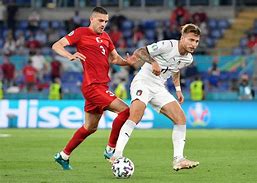欧洲杯已诞生7席
573
2024 / 05 / 21
Introduction
The UEFA European Championship, commonly referred to as the Euros, is a quadrennial football tournament contested by the men's national teams of the member associations of UEFA. Since its inception in 1960, the competition has grown in stature and popularity, becoming one of the most prestigious and watched sporting events globally. This article delves into the history of the Euros, exploring its evolution, memorable moments, and the impact it has had on the world of football.
The Birth of a Tournament
The idea of a European football championship was first conceived in the 1920s, but it wasn't until the 1950s that concrete steps were taken to bring the concept to life. The tournament was officially established in 1960, with the inaugural competition held in France. The Soviet Union emerged as the first champions, defeating Yugoslavia in a thrilling final. The early years of the Euros saw modest participation, with only four teams competing in the final stage. However, the tournament's format and scale would evolve significantly over the decades.
Expansion and Popularity
The Euros underwent its first major expansion in 1980, when the final tournament was expanded to include eight teams. This change allowed for a more diverse range of nations to compete, increasing the tournament's appeal and reach. The 1996 edition in England marked another milestone, with the number of finalists doubling to 16 teams, a format that has remained in place since. The expansion not only broadened the competitive landscape but also heightened the level of excitement and unpredictability that has become synonymous with the Euros.

Iconic Moments and Legendary Players
Throughout its history, the Euros have produced countless unforgettable moments and showcased the talents of some of the greatest footballers of all time. The 1976 tournament, held in Yugoslavia, is remembered for Antonin Panenka's audacious chipped penalty that won Czechoslovakia the title. In 1988, the Netherlands' Marco van Basten etched his name into Euros folklore with a stunning volley in the final against the Soviet Union. More recently, the 2016 edition saw Portugal, led by Cristiano Ronaldo, claim their first major international trophy after a dramatic extratime victory over hosts France.
The Euros have also been a stage for the emergence of young talents who have gone on to become global stars. Players like Michel Platini, who scored nine goals in the 1984 tournament, and Fernando Torres, who scored the winning goal in the 2008 final, have used the Euros as a platform to showcase their skills and launch illustrious careers.
Cultural Impact and Legacy
Beyond the pitch, the Euros have had a profound cultural impact, uniting nations and fostering a sense of European identity. The tournament has been a catalyst for social and political dialogue, often reflecting the broader issues of the time. For instance, the 1992 Euros in Sweden saw a unified German team compete for the first time, symbolizing the postCold War era. The 2004 tournament in Portugal was a celebration of the "Eurosceptic" underdog, with Greece's unexpected triumph resonating with fans across the continent.
The Euros have also played a significant role in the development of football infrastructure across Europe. Hosting the tournament has spurred investment in stadiums and facilities, enhancing the quality of the game and the fan experience. Moreover, the Euros have been a driving force behind the growth of women's football, with UEFA using the platform to promote gender equality and increase participation in the sport.
Conclusion
As the Euros continue to captivate audiences around the world, the tournament's legacy is evident in the passion it ignites, the memories it creates, and the bonds it forges between nations. The Euros have not only shaped the landscape of European football but have also contributed to the cultural fabric of the continent. As the anticipation builds for each new edition, the enduring appeal of the Euros is a testament to the power of sport to inspire, unite, and entertain.
The UEFA European Championship has come a long way since its modest beginnings in 1960. From a fourteam competition to a 16team extravaganza, the Euros have grown in size and significance, leaving an indelible mark on the world of football. As we look forward to future editions, the tournament's rich history and the promise of new legends being made ensure that the Euros will remain a cornerstone of the global football calendar.
